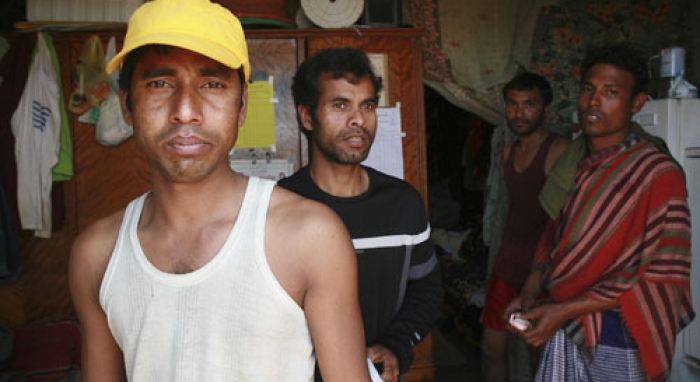The sixth and final ‘thematic session’ on a global migration agreement was held from 12-13 October in Geneva. This ‘Global Compact on Migration’ calls for coordinated efforts to ensure safe, orderly and regular migration. A coalition of civil society groups has elaborated on this with a ten-point plan for action to call for this global governance to be, at its heart, rights-based.
ISHR programme manager and advocate Sarah Brooks notes that there is an enormous body of international human rights law that applies to all persons, regardless of status. ‘To ignore this fact, and instead negotiate a non-binding agreement covering some aspects of the rights’ challenges faced by migrants, but not some – perhaps politically-unpalatable – others, poses a serious risk to the real chances of improving protection of the human rights of migrants’, says Brooks.
The civil society vision includes attention to areas such as decent work, access to justice, inclusion and governance. In this regard, two key issues were raised during the session but could and should be reiterated and strengthened as the process moves forward.
1. A safe and enabling environment for rights defence
- Space for civil society and defenders’ action: Despite a broad consensus about the positive role of civil society and defenders, the discussions did not recognise that, globally, the space for these actors is shrinking and that governments – through restrictive legislation, criminalisation and other means – are often the actors responsible.
- Skills and gender perspective: There was significant mention of the importance of civil society actors by panelists. They were recognised as important players in the field of skills mobility, through their work towards international recognition of qualifications and assisting skills-matching. The role of civil society was prominent too in discussions regarding the implementation of a gender-based approach, where civil society recommendations and monitoring could greatly improve implementation of a gender perspective.
- Partnerships needed: The Philippines noted the need for partnerships to be made with relevant stakeholders ‘with particular recognition of the important role of civil society organisations and other social partners in disseminating safe migration information and ensuring migrant workers and their families access to necessary services’.
- Rights-based approach: ISHR was one of few speakers to draw attention to the essential need for human rights defenders and civic space to be protected, in order for migrants to truly benefit from robust rights protections. Brooks called on States contributing to the Compact to ‘ensure all those who support and defend the rights of migrants are able to carry out their work safely, freely, and without harassment’.
2. A principled and rights-based approach for business engagement
This particular thematic session, addressing labour mobility, has a significant focus on the situation for migrant workers.
- Recruitment practices: Many experts and delegates placed a significant amount of importance on the role of the private sector in ensuring improved conditions for and treatment of migrant workers. Businesses, it was often repeated, must practise free and ethical recruitment and cooperate with the public sector to assist migrant workers to access the formal labour market. UN Special Rapporteur on Migrants Felipe Gonzalez Morales stated that ‘the private sector must become part of the solution, in accordance with international human rights standards…. [and] the private sector, including recruitment agencies and employers, must respect the human and labour rights of their workers’.
- Engaging with trade unions and civil society: Businesses have a responsibility to respect human rights under the UN Guiding Principles, and many efforts to combat unethical recruitment are in line with those aims. ‘These efforts must be grounded in meaningful engagement with trade unions and civil society’, Brooks explained. Sadly, however, the discourse of governments at the meeting sometimes implied that the challenges of labour and human rights violations could be solved with technical fixes. Trade unions were acknolwedged to play a key role, but Brooks remained concerned that in many jurisdictions, legal barriers to unionisation make this a virtual impossibility. She continued: ‘When businesses operate in jurisdictions where migrant workers – and arguably, migrants in general – are legally excluded from these protections, these businesses must advance dialogue and solutions based on international standards and their own codes of conduct – not simply put their heads into the sand’.
Rather than simply accept the fact, true in more than 100 countries, that migrants face restrictions on basic fundamental freedoms, Brooks argued that the private sector can and should do more to support migrants’ rights, practically and politically, including by calling governments to pay more attention to the importance of migrants’ rights to freedoms of association, expression and assembly.
For more information, please contact Sarah M Brooks at s.brooks[at]ishr.ch or follow her at @sarahmcneer.
Photo credit: indymedia athens (via Flickr)




